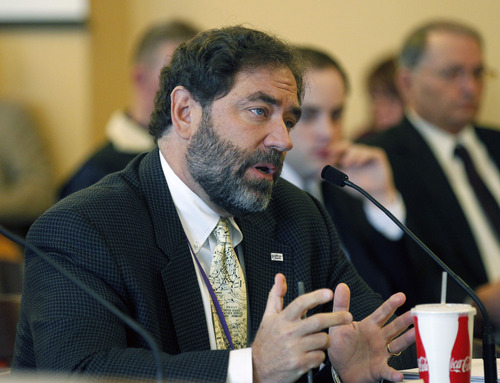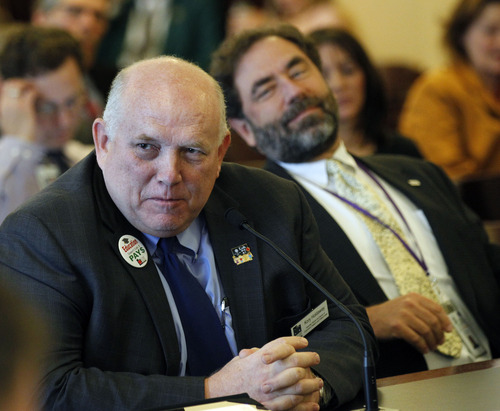This is an archived article that was published on sltrib.com in 2013, and information in the article may be outdated. It is provided only for personal research purposes and may not be reprinted.
Legislators on Friday put a cork in a proposed tax increase on wine, beer and spirits, not swallowing arguments that it is needed to reduce underage drinking by Utah teens and over consumption by adults.
The House Revenue and Taxation Committee voted 12-3 to kill HB136, which was to have raised those taxes by 4.65 percent.
Its sponsor, Rep. Jack Draxler, R-North Logan, said the tax hike's goal "is not revenue related, it has to do with the need in our state to curb overconsumption among adults, and underage consumption."
In fact, the fiscal note on the bill estimated that despite the tax increase, the state would actually lose $465,000 a year because of lowered alcohol sales.
Utah already has some of the highest taxes on alcohol in the nation, according to the Federation of Tax Administrators. For example, its beer taxes are seventh highest in the nation at 41 cents a gallon, and the hike would have raised them another 1.9 cents. The national median is 19 cents a gallon. Taxes in nearby states are much lower, including 2 cents in Wyoming, 8 cents in Colorado, 15 cents in Idaho and 16 cents in Nevada, according to the federation.
Rep. Gage Froerer, R-Huntsville, said the tax hike would not "result in a decrease of consumption, but an increase of people going over the border" to buy it.
Several lawmakers also noted that Utah already has the lowest alcohol consumption rates in the nation. But Draxler said the state still has an estimated 60,000 underage drinkers.
He said binge drinkers and teen drinkers are not responsible, and lead to more drunken driving and other problems. "Typically teenagers drink to get drunk. You have very few social drinkers among teenagers." He added that studies show that higher costs tend to decrease their consumption.
But Jim Olsen, president of the Utah Beer Wholesalers Association, said, "I don't see how a 4 to 5 percent increase is going to do anything [to decrease consumption] for these people who are willing to spend $100 for a pair of jeans or shoes."
The proposal was also opposed by such groups as the Utah Taxpayers Association, the free market Libertas Institute and food retailer associations. It was supported by Mothers Against Drunk Driving.
Rep. Doug Sagers, R-Tooele, whose mother and sister were critically injured by a drunken driver, said he asked himself if the tax would have made a difference for them. "The answer is no. Would it stop young people from drinking? No."
Draxler noted that lawmakers had been heavily lobbied by opponents against the bill, but asked them to consider it with an open mind. Of note, the beer, wine and spirits industry donated $30,000 to current legislators in the last election cycle.
Meanwhile, the committee could not come to a conclusion after an hour of debate on whether to increase state severance taxes on oil, gas and minerals by an estimated $76 million a year. It put HB98, which would raise those taxes, on the top of the agenda for its next meeting on Monday.
Its sponsor, Rep. Brian King, D-Salt Lake City, said it was written to send most of the new revenues to education. He noted that Utah severance taxes are among the lowest in the nation.
But Lee Peacock, with the Utah Petroleum Association, said it could decrease the number of wells and production in Utah, where production is more expensive and complicated than in neighboring states. He said such a hike could shift production to other states, and hurt Utah's economy.
Also, Irene Hansen, who works on economic development for Duchesne County, said Indian tribes also have severance taxes — so some companies are double-taxed because of that in oil country.
The Utah Education Association favored the hike saying it could help decrease class sizes, and help increase student achievement.





